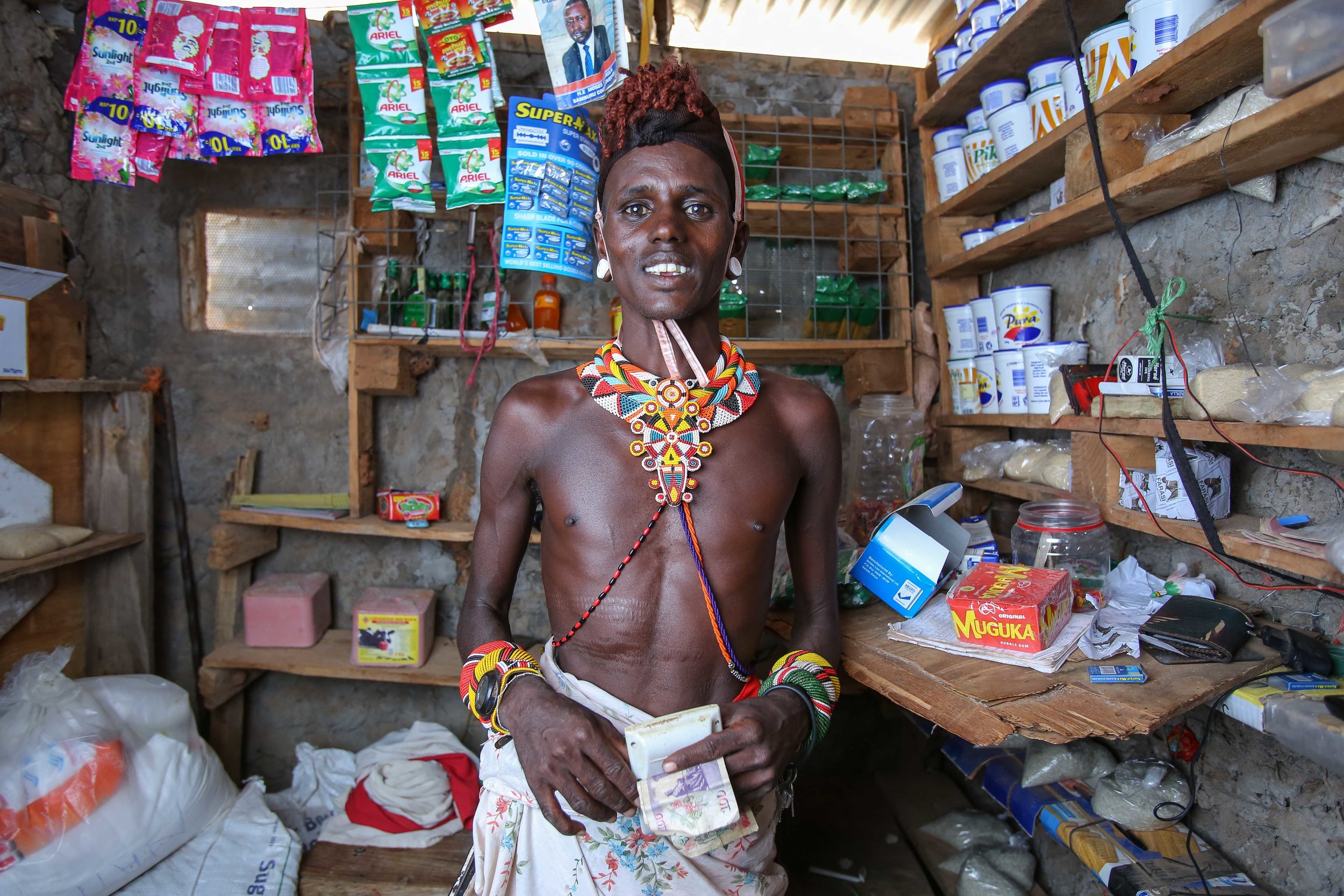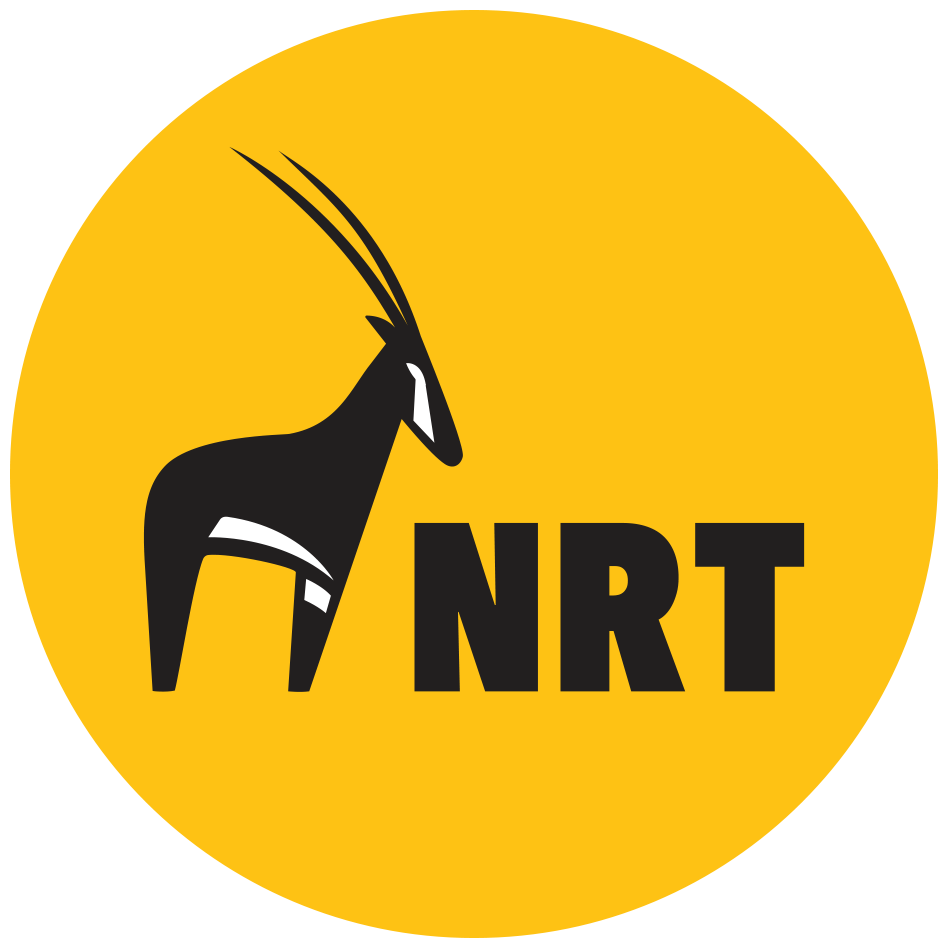
Transforming lives is at the heart of the community conservancy model. As well as improving security and the management of rangelands and wildlife, conservancies provide their constituents with access to jobs, better services for community development and more business opportunities.
NRT Trading (NRTT) is a business accelerator for social and conservation impact enterprises. It was established by NRT to accelerate the development of sustainable and resilient commerce across the member conservancies, at all levels of the social spectrum: from household businesses run by women and youth, to conservancybased businesses that leverage community assets, to businesses operated by NRT Trading to improve value chain dynamics and connect people to distant markets.
“Many failures in development derive from externally driven or top down solutions. Too often you see projects that have been established with little community consultation, so when there are problems no incentive or capacity to fix them. The success of the community conservancy model is largely down to the fact that communities are taking charge of their own development. What we’re seeing with the Conservancy Livelihoods Fund is an end-to-end ownership of projects, from the democratic identification of problems and challenges, to the development, governance and maintenance of solutions.”
Mike Harrison - former CEO and CLF sponsor.

The Conservancy Livelihoods Fund: Empowering communities to identify, plan and implement their own development programmes.
The Conservancy Livelihoods Fund (CLF) was established in 2015 to enable conservation activities to have more direct, tangible livelihoods benefits to conservancy members.
To date (2015-2020), the CLF has provided more than KSh 467 million (US$ 4.2 million) for 162 projects across all member conservancies, benefiting an estimated 75,702 people.
It is open to any NRT member conservancy to apply for, with proposals that reflect community priorities and have been approved by conservancy boards. Priority is given to projects that link livelihood impacts to wildlife conservation, build long-term climate resilience, peace and sustainable enterprise, build capacity and empowerment of women and youth, and that leverage funding from Government and other partners for multiyear projects. An independent review of the CLF by Conservation Capital in 2019 highlighted it as a “rare and highly progressive grant-giving body, that empowers communities to identify their own livelihood priorities rather than being driven by donor agendas”. The review highlighted the close institutional and enduring relationships between NRT and member conservancies as a key condition for success, alongside the outcome-focused investment strategy (what the funding causes to happen, rather than what the funding pays for).
Building businesses

Biashara Mashinani (Business at the grassroots)
Biashara Mashinani develops the individual and group capacity of people in conservancies to start and manage enterprises. Using a structured, graduation-based process, it combines training, business development, mentorship and financial literacy tools such as savings, loans, mobile banking and a savings and credit cooperative (SACCO). Biashara Mashinani aims to bring women and youth into the economic mainstream by supporting diversified income sources, and an asset base that is not solely reliant on livestock. It is the only program in northern Kenya that focuses on young men as well as women.
Vocational Training (Ujuzi Manyattani)
Ujuzi Manyattani aims to provide mobile, village-based vocational training to people in community conservancies by partnering with polytechnic institutions. It is a response to a wider drive by community conservancies to diversify indigenous livelihoods and encourage entrepreneurship amongst women and young morans. Proposed by community conservancies and developed by NRT Trading’s Community Economic Empowerment team, the programme is tailored to the demands and lifestyles of the pastoralists it aims to serve. Courses in mechanics, masonry, mobile phone repairs, welding and carpentry were all chosen by students in the successful 2019 pilot, where 58 young men graduated.
In 2020, Ujuzi Manyattani training centres were opened in Biliqo Bulesa, Nakuprat Gotu, and Ltungai conservancies, with 81 trainees enrolled. However, due to COVID 19 disruptions, only 68 trainees completed training and assessment by the close of the year. For the first time, one young woman enrolled, choosing mobile phone repair and maintenance. In 2021, 514 youth and women joined the programme from Songa, Nakuprat-Gotu, Nasuulu, Jaldesa, Shurr and Meibae conservancies.
In 2021, 150 trainees graduated at an event presided over by the Principal Secretary (PS) State Department of Technical and Vocational Education and Training (TVET), Dr. Margaret Mwakima.
Financial Inclusion - Creating an Ecosystem for Individual and Group Enterprises
The Northern Rangelands Savings and Credit Cooperative (NR SACCO) was founded in 2016 to act as a financial intermediary particularly for youth and women to be able to access small business loans and other financial services. It is an independent, community-owned and membership-driven organisation, which receives critical oversight, technical support and training from NRT Trading. The SACCO works closely with conservancies to administer savings and micro-credit loans. Despite COVID-19 challenges, NRT Trading continued to provide business capital to communities, unlike most financial institutions that suppressed lending to businesses in 2021.
KSh 36.6 million (USD 332,727) was received for onward lending by NRTT in 2021, compared with KSh 30.3 million (USD 303,000) in 2020.
Communities’ capital contribution to the SACCO also increased in 2021 despite the pandemic, and NRTT has now provided over KSh 100 million (USD 1 million) in funding for community enterprises since its inception.
In 2021:
The SACCO was active in 39 of the 43 member conservancies
An additional 1,375 SACCO members were recruited during the year (compared to 940 in 2020), bringing the total membership to 5,040
KSh 63.6 million (USD 578,181) loans was disbursed during the year to finance 1,656 women and youth enterprises
Ksh 12.2 million (USD 110,909) was accrued by members in savings and shares
The savings and shares mobilized during 2021 was KSh 12.2 million (USD 110,909) - compared with KSh 8.6 million (USD 86,000) in 2020 - bringing the total capital contribution from the community to KSh 20.8 million (USD 208,000)
A capacity assessment of 400 entrepreneurs was undertaken, and the findings were used to develop a business training program that addresses the identified skill gap.
Water, Education, Health & Employment

Water
NRT established a water programme in 2019, building on almost a decade of investment in water development in member conservancies. The overall aim of the water programme is to ensure water investments are planned holistically, address community priorities, take into account social and environmental considerations and build conservancylevel governance and management capacity. Water access is critical to the success of so many conservancy programmes - wildlife conservation, livestock, livelihoods development (schools and health centres), tourism, peace (resource-based conflict reduction), security (ranger outposts) - that despite the programme being relatively new it has received exceptional support from both existing and new partners. Over 30 water projects launched, rehabilitated or completed in member conservancies in 2021, to improve a water access for people, livestock, and wildlife.
Education
Educational disparity in urban and rural areas in Kenya is stark. While the adult literacy rate in Nairobi is 96.1% for example, it is just 8.2% in Garissa County, home to predominantly pastoral communities. It isn’t just that rural areas in Kenya lack the infrastructure to provide formal education; it is also that pastoral communities are semi nomadic, making it difficult for children to stay in one school for the required period of time. Furthermore, formal education has historically been a low priority for these groups, especially with regards to young girls.
Currently, there is little government funding to meet the needs of schools, and where there is funding for infrastructure, urban schools typically take priority. Teacher retention in rural schools is also a challenge, not least because accommodation facilities in those schools are lacking or non existent.
NRT launched the first phase of its Education Programme in 2012, working with nine community conservancies to identify beneficiary schools and help the selected schools assess and prioritise their needs.
Infrastructure development
School supplies
Training for teachers
Tuition bursaries
Conservation education
To date, over 7,000 students have benefited from the Education Programme, and schools have recorded a significant improvement in teacher to student contact hours, student enrolment and attendance and graduation into the next grade. Furthermore, providing access to education through the community conservancy model makes a tangible link between improved livelihoods and wildlife and habitat conservation, increasing local support for conservancy operations.
NRT works closely with local government and leadership throughout the process. The conservancy board and management oversee the day to day supervision of projects, while NRT manage the finances, quality control, construction plans, compliance, technical supervision and monitoring and evaluation. Find out more about the education programme.
In 2021, 23 female intern teachers were recruited on a three-year contract funded by NRT and Conservation International (CI) and deployed to selected schools within NRT member conservancies to assist girls in enrolling, attend schools and improve their academic performance.
Health
To address community priorities and gaps in health care provision in the landscape, NRT is developing a health programme to complement Government health services, working closely with the University of Nairobi and the University of Plymouth (UK) to support the assessment of community health needs, and the subsequent priority actions.
In 2021:
In Biliqo Bulesa Conservancy’s Biliqo Dispensary, NRT implemented and completed multiple health infrastructure projects.
9 health outreaches were conducted in Songa, Jaldesa and Shurr Conservancies and approximately 5,400 people were attended to.
NRT invested Ksh 27,500,000 (USD 250,000) in Biliqo Bulesa Conservancy for the establishment of Biliqo Dispensary.
Employment
In a landscape where formal employment is hard to come by, NRT and the community conservancies collectively are one of the biggest employers, with 1,350 permanent staff and thousands of temporary jobs created every year. There are 1,098 permanent employees in community conservancies, and in 2019, at least 190 people from local areas were permanently employed in tourist camps and lodges in conservancies. This sector was hit hard by the travel bans imposed by the coronavirus pandemic, resulting in many lodge employees being let go or furloughed. 901 temporary jobs were created in conservancies in 2021, ranging from road projects to classroom construction.
Tourism
Tourism is one of the most powerful ways for local communities to see tangible benefits from wildlife and habitat conservation. Not only do lodges, camps and adventure operators provide jobs to local people, but the revenue to conservancies from bed night and entry fees support core operations (such as ranger salaries and vehicle maintenance) and social projects for the entire community (such as education and health). There are currently six lodge operators in six NRT member conservancies.
Conservancies provide a framework for investors to ensure they are working with, and have the support of, local communities. Agreements with tour operators made through conservancies help to ensure the needs and concerns of communities are met, and that investments are sustainable and responsible.
NRT Trading has launched The Big North to support the marketing of conservancy-based tourism operations.
